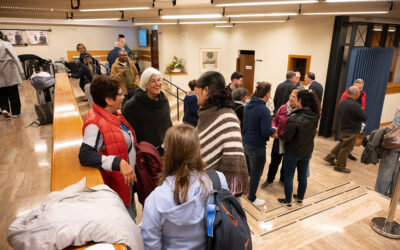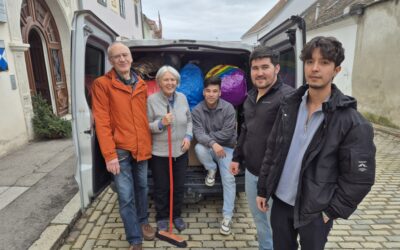The Word of Life for March 2022 invites us to put into practice a phrase we recite every day in the Our Father: “Forgive us our trespasses as we forgive those who trespass against us”. But how can we forgive? Forgive. Always forgive. Forgiveness is not forgetfulness, which often means reluctance to face a situation. Forgiveness is not a sign of weakness, whereby we ignore an injustice we have suffered out of fear of the stronger person who committed it. Forgiveness does not mean saying that something serious is just a trifle or that something evil is good. Forgiveness is not indifference. Forgiveness is a conscious act of will, and therefore, a free act. It consists in accepting our neighbours as they are, despite the wrong done to us, just as God accepts us sinners, despite our faults. Forgiveness consists in not responding to an injury with another injury, but in doing what Paul says: “Do not be overcome by evil but overcome evil with good.”[1] Forgiveness consists in offering the person who has wronged you the opportunity of a new relationship with you. It makes it possible for both of you to start over again and to experience a future in which evil does not have the last word. … You should act this way, first of all, towards those who share your faith – in your family, at work, at school, or in your community, if you belong to one. And you know that even people who live in the same household often hurt one another because of differences in personality, nervous tension, or other causes. Therefore, you must remember that only a constantly renewed attitude of forgiveness can maintain peace and unity among everyone. You will always tend to think about other people’s faults, to remember their past, to wish they were different from the way they are. Instead, you should develop the habit of seeing them with new eyes, of seeing them as new people, accepting them always and immediately and just as they are, even if they do not repent or change. You may say: “But that’s hard!” And you are right. However, this is the beauty of Christianity. In fact, it is not by chance that are you following a God who, as he was dying on the cross, asked his Father to forgive those who had caused his death. Take heart! Start living like this. I assure you that you will experience peace and joy that you have never known before.
Chiara Lubich
(Chiara Lubich, in Parole di Vita, [Words of Life] Città Nuova, 2017, pp. 218-219) [1] Rom 12:21.




0 Comments